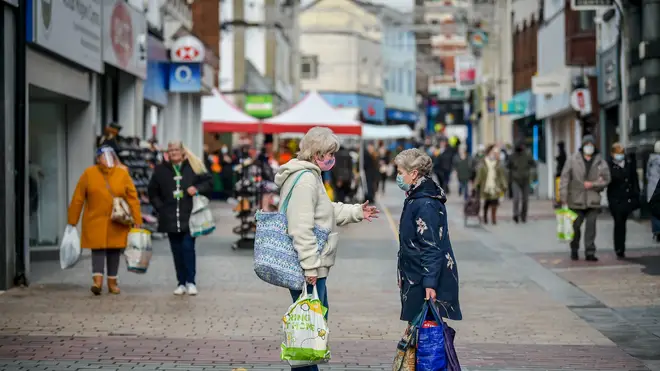
Nick Ferrari 7am - 10am
21 April 2021, 00:04

Holes in UK households’ financial resilience have been exposed during the Covid-19 crisis, the Resolution Foundation said.
UK households are far more likely to have experienced a severe income shock during the Covid-19 crisis than their French and German counterparts, according to a think tank.
The Resolution Foundation, which published the research, said households in the UK are also more likely to have taken on additional debt in response.
Typical household incomes across all three countries were broadly similar in the year before the pandemic, according to the After Shocks report, supported by JPMorgan Chase.
But beneath the surface it said there were big differences in households’ financial positions.
On the eve of the crisis, higher inequality meant that the UK’s poorest households had incomes were 20% lower than those in France. Its social security and private savings safety nets were also weaker than in France and Germany, the report stated.
This weaker safety net meant that while UK households were just as likely to have experienced a negative employment change as French households during the crisis (38% and 39% of households who were in work in February 2020 respectively, compared with 27% in Germany), they experienced a far bigger hit to their living standards than their European counterparts, the foundation said.
The report found that among households in which at least one person had fallen out of work, more than two in five (41%) UK households had suffered a severe income fall of at least 25% – twice the level in France (20%) and significantly higher than in Germany (28%).
A third (33%) of UK households have cut back their spending – a higher proportion than in France (23%) and Germany (21%).
Income shocks have fed through into wider financial challenges. The report said that among households that had taken an income hit during the crisis, UK households were more likely to have struggled to meet their housing costs than those in France and Germany (50%, compared with 43% and 44% respectively).
UK households with an income hit were also twice as likely to have taken on more debt during the pandemic to cover living expenses than German and French households, with the proportion of households doing so at 17%, 9% and 8% respectively.
The foundation said the uneven impact of the pandemic on household finances was likely to last far longer than the pandemic itself – with a higher proportion of the lowest-income households drawing on savings or taking on debt to support living standards compared with the highest-income households.
The think tank, which is focused on improving the living standards of those on low-to-middle incomes, added that strengthening households’ financial position, particularly among low-income households, should be a priority.
Maja Gustafsson, an economist at the Resolution Foundation, said: “Typical households across the UK, France and Germany had broadly the same income levels on the eve of the Covid-19 crisis.
“But beneath this similarity lie big differences in households’ financial resilience, with UK households having fewer savings to draw down, and a far less generous benefit system to protect them in hard times.
“These holes in UK households’ financial resilience have been exposed during the Covid-19 crisis.”
A Government spokesperson said: “The latest official figures show that average household incomes saw their strongest annual growth for nearly 20 years in 2019/20, putting families on a firm financial footing before the pandemic.
“Throughout this pandemic we have done all we can to support jobs and livelihoods with our unprecedented £350 billion package of support, including the self-employed and furlough schemes which are among the most generous in the world.
“We have also supported those with the lowest income by injecting billions of pounds into the welfare safety net, ending the benefits freeze, helping with housing costs and increasing the national living wage.”